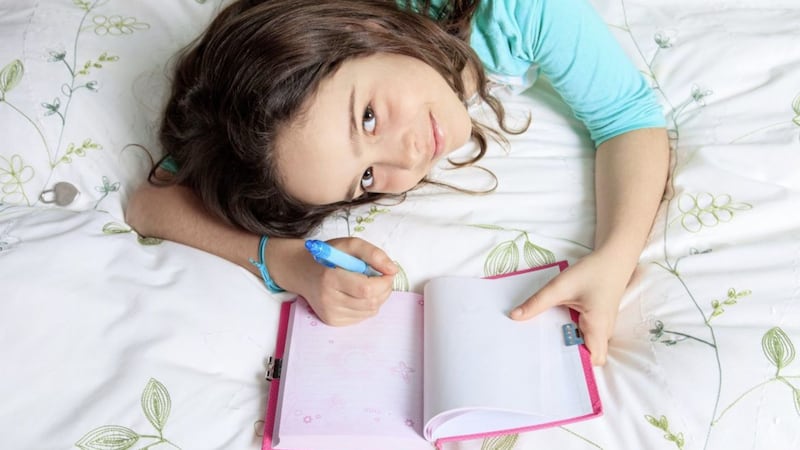LETTING thoughts and feelings flood out onto the pages of a diary can be a valuable emotional release – but for children, expressing emotions isn't the only huge benefit of diary writing.
Pupils who keep a diary are almost twice as likely to write above the expected level for their age as children who don't keep one (27.1 per cent vs 15.5 per cent). In addition, a report by the National Literacy Trust (NLT) found diary writing allows children to choose what they want to write, and 82 per cent of girls and 76 per cent of boys say if they can choose the subject, writing is more fun.
CHRISTMAS DIARY
Because of the clear benefits of diary writing, the NLT is calling on parents to think about giving children a diary for Christmas.
"Encouraging children to keep a diary is a great way to get them excited about writing," says NLT director Jonathan Douglas. "Writing about the best parts of their days, their friends, and their hopes and dreams can be fun for children. Diaries are also a great way to help children build resilience as they process their thoughts and express their feelings.
"We're encouraging anyone buying presents for a child this Christmas to give the gift of a diary. You'll be giving them a platform to express themselves through words and the tools to become a better writer and do well at school. The more children write, the better at writing they'll become. And you never know – your child could produce the next Diary Of A Wimpy Kid!"
VIVID MEMORIES
The diary campaign is supported by children's author and former Children's Laureate Jacqueline Wilson, who kept a diary herself as a teenager and has included diary writing in her books, including diary entries in her children's fiction series Tracy Beaker, and her own diary entries in an autobiographical account, My Secret Diary.
"I still have the diaries I wrote as a teenager. I wince at times when I read them, but they bring back those long-ago days so vividly and help me remember what it's like to be young," she says. "Diary writing is a brilliant idea for children, because it helps them organise their thoughts and express themselves. They get used to writing every day and become fluent. They often enjoy using a special book and pen and feel grown-up keeping their own private diary."
DIARY DECLINE
The NLT report found diary writing to be more popular with girls, and more broadly with younger children of both genders – three times as many girls as boys keep a diary (29.5 per cent vs 10.3 per cent), while twice as many pupils in their final years of primary school write in a diary compared to pupils in their last years of secondary school (29.4 per cent of pupils aged 8-11 vs 11.9 per cent of pupils aged 14-16).
While the research also highlighted a drop in the number of children writing in a diary over the past five years, from one child in four (24.5 per cent in 2010) to one child in five (20.3 per cent in 2015), it also found that almost half of children (46.8 per cent) are still writing something in private in their free time.
Douglas says: "Diaries give children a chance to express themselves and provide a unique opportunity to get them excited about writing – something which is important as the number of children writing in diaries has declined in recent years. Diaries are also a great way to help children build resilience as they process their thoughts and express their feelings."
Wilson says she always advises would-be writers to keep a daily diary as it gets them into a regular writing habit.
"It's also a brilliant way of expressing yourself and confiding special secrets," she says. "I always hope for a diary as a Christmas present, and give different kinds to many friends."
STRICTLY PRIVATE
But what about those parents who feel compelled to read their children's diaries?
"The whole point of a diary is that it's private," stresses Wilson. "When I was young, I wrote pages in tiny writing, confiding all my hopes and ambitions, my secret loves and hates, my daily life and my dream life too. I took care to hide my diary in a secret place."
And Douglas adds: "Keeping a private diary enables children to explore thoughts and feelings that they may not want other people to be privy to. Writing them down can help children to process these feelings, work out how they feel about people, events and situations, and even come around to new ways of thinking.
"Sometimes children will want to share what they've written in their diaries – perhaps they're proud of a poem and want to share it with their parents, or maybe they want a friend's opinion on some song lyrics. But parents should never read their child's diary without their permission."








